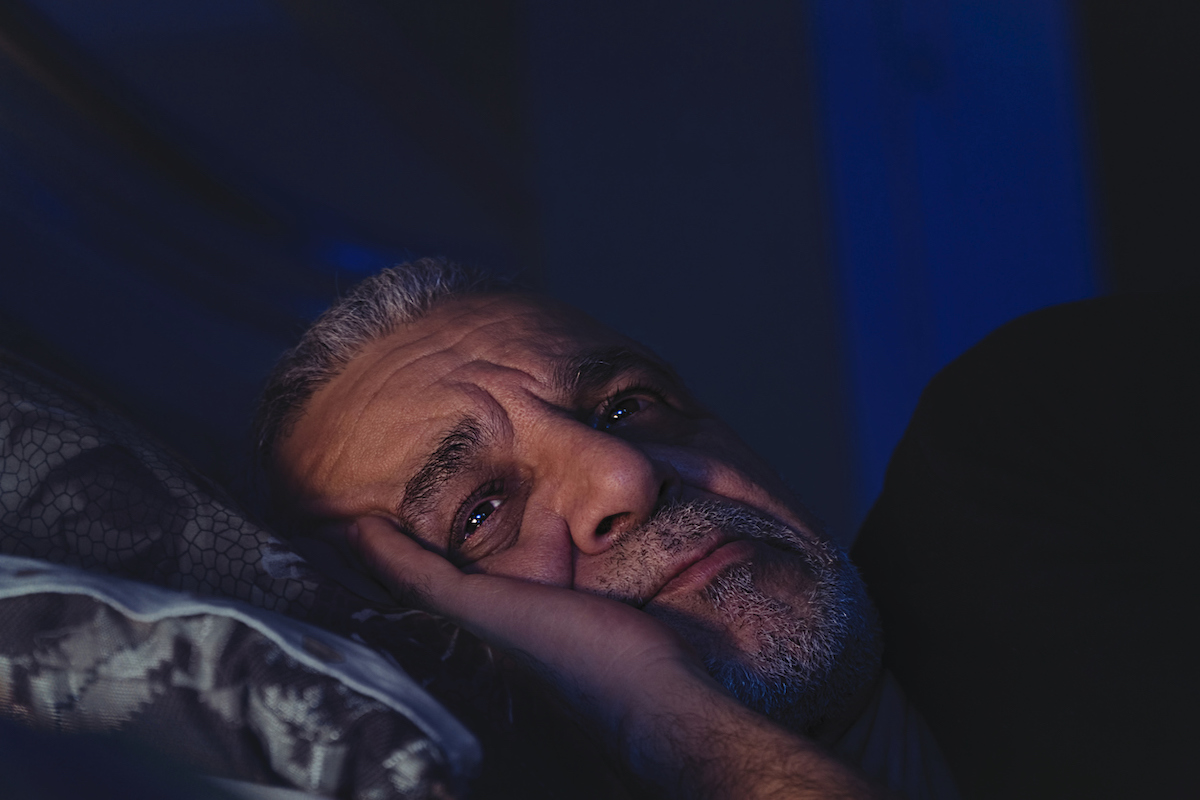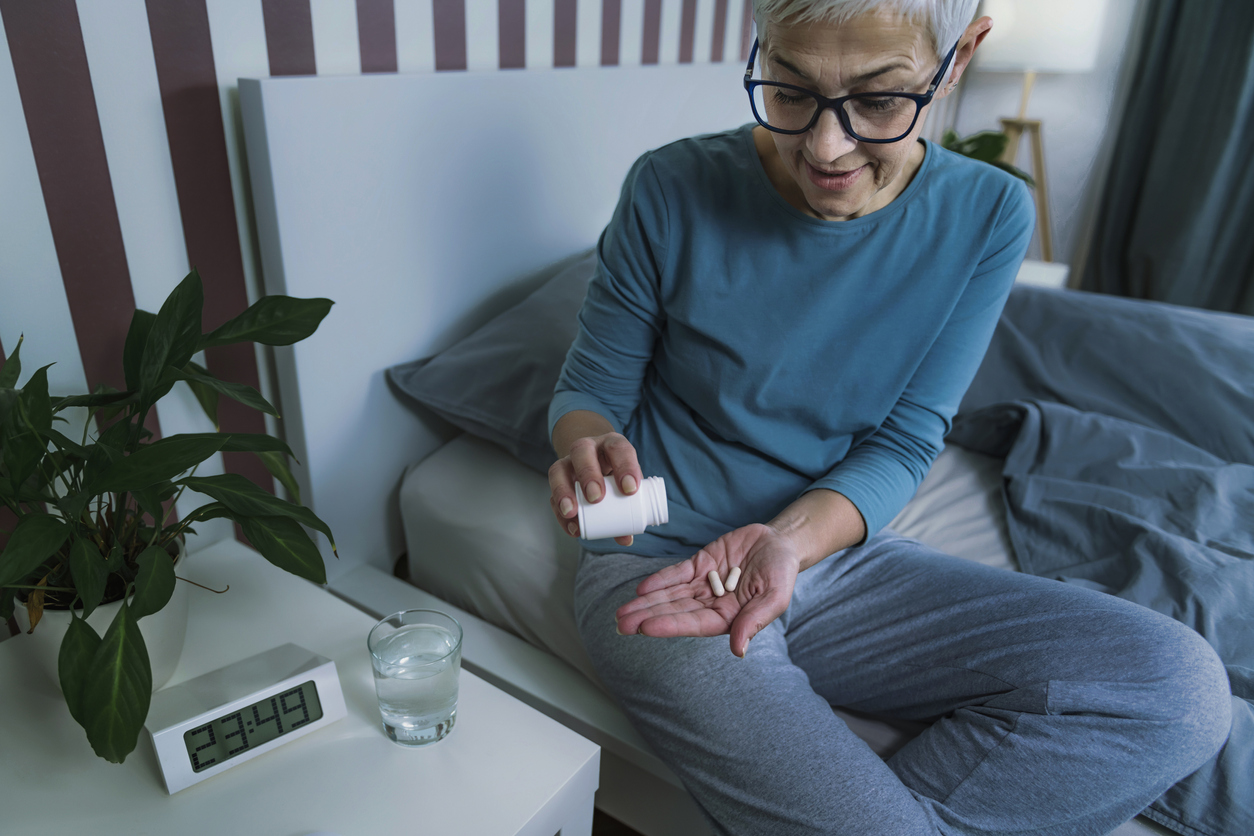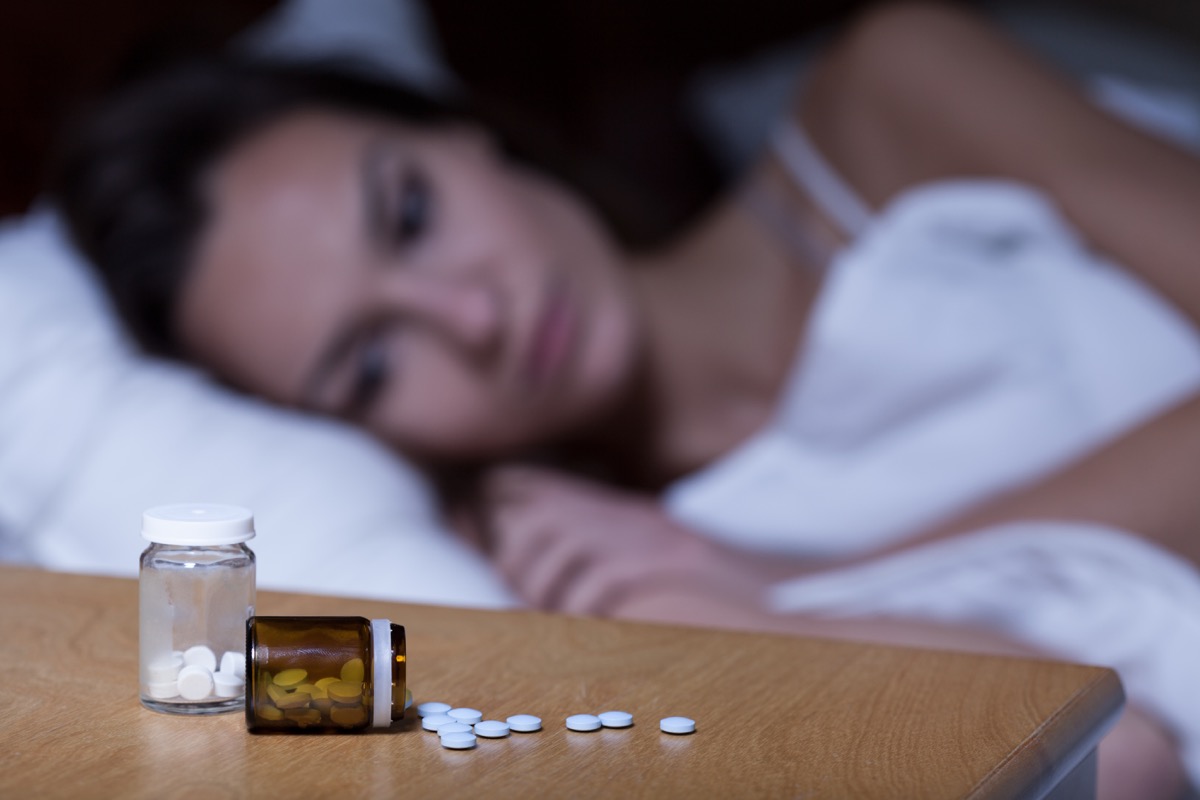A March 15 study published by Hypertension, an American Heart Association (AHA) journal, found that beta-blockers might be to blame for some people’s sleep struggles. Beta-blockers are prescribed to people with various cardiovascular conditions, including heart failure, arrhythmias, chest pains, and high blood pressure, but they’re also given to patients with anxiety, as the AHA explains in a statement. They’re prescribed to over 20 million Americans. The medication works by reducing the heart rate, the heart’s workload, and the heart’s output of blood, which all work to lower blood pressure. The study found that “unusual dreams, insomnia, and sleep disorders may be linked to beta-blockers.” And for more medication guidance, If You’re Swallowing Your Medication With This, Stop Immediately. A Sept. 2012 study published in Sleep suggested that a dip in melatonin levels when using beta-blockers is likely the reason the medication often conflicts with sleep. “Many beta-blockers can decrease the amount of melatonin by up to 80 percent,” according to Sona Pharmacy + Clinic. Melatonin is a hormone released by the pineal gland that’s closely linked to sleep. Your brain produces the hormone in response to darkness, and it helps maintain the timing of your circadian rhythms and sleep, as the National Institute for Contemporary and Integrative Health (NIH) explains. In addition to being affected by beta-blockers, melatonin can be influenced by many things, including “your sleep-wake cycle, the time that you get up, the time you go to bed, and the amount of light you are exposed to,” per Sona Pharmacy + Clinic. And for more unintended consequences, If You Drink This, You Could Become Resistant to Antibiotics, Study Says. Many people who have trouble sleeping reach for melatonin supplements, which is what experts suggest those taking beta-blockers try. Frank Scheer, PhD, an associate neuroscientist at Brigham and Women’s Hospital and principal investigator on the Sleep study said, “Beta-blockers have long been associated with sleep disturbances, yet until now, there have been no clinical studies that tested whether melatonin supplementation can improve sleep in these patients.” The study confirmed “that melatonin supplements significantly improved sleep,” he added. And for more warnings you should know, If You’re Taking This Medication, the FDA Has a New Warning for You. The recent AHA study originally set out to link depression to beta-blockers, since it’s the most frequently reported mental health side effect, but stumbled across the sleep complications while conducting the study. The researchers ultimately couldn’t find any link between depression and beta-blockers.ae0fcc31ae342fd3a1346ebb1f342fcb “Our results indicate that concerns about adverse mental health events, especially depression, should not affect the decision about beta-blockers. Beta-blockers are mostly safe regarding psychological health,” study author Reinhold Kreutz, MD, PhD, a professor at the Berlin Institute of Health, Institute of Clinical Pharmacology and Toxicology, said in a statement. “We found no indication of an association between beta-blocker use and depression. The same was true for most of the other mental health symptoms.” And for more up-to-date information, sign up for our daily newsletter.



